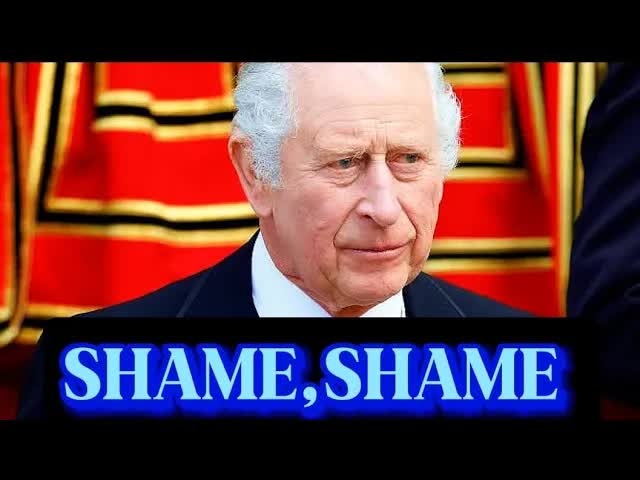The British Royal Family is often seen as a beacon of tradition, history, and wealth.
For centuries, they have stood as an emblem of continuity amid a rapidly evolving world.
Their legacy is not just about bloodlines; it’s about a way of life that embodies power and privilege.
With Buckingham Palace as their crown jewel, the Royal Family conjures images of grandeur—think of the Royal Guards standing at attention and the throngs of admirers outside their residences.
However, beneath this polished exterior lies a contrasting reality.
While the Royals indulge in a lifestyle that many can only dream of—complete with extravagant events, luxury vehicles, and sumptuous galas—their staff often struggle to make ends meet.
Recent revelations have thrown this disparity into sharp relief, highlighting the financial challenges faced by those who help maintain the monarchy’s pristine image.
The headlines have been rife with controversies surrounding the Royal Family, igniting public protests and drawing intense media scrutiny.
Once viewed as untouchable, the monarchy’s image is now under siege.
The Royal Household, tasked with managing the affairs of the monarchy, has found itself mired in allegations of financial mismanagement and unfair treatment of its employees, casting a long shadow over the institution.
Interviews with staff members reveal a shocking juxtaposition: while they toil away to uphold an image of opulence, their earnings remain modest, far removed from the lavish lifestyles they support.
The public reaction has been one of disbelief and outrage as citizens grapple with the stark contrast between the royal family’s glitz and the realities faced by those behind the scenes.
King Charles III, who ascended the throne with a significant fortune, has become a focal point of fascination.
His wealth, estimated to be in the billions, stems from a mix of inherited assets, personal investments, and the historical value of royal possessions.
The Royal Art Collection, one of the most valuable collections globally, is just one example of the riches that define the monarchy.
Moreover, the Duchy of Cornwall, a private estate, previously generated millions for Charles before he became king.
The annual sovereign grant, which covers official duties and staff salaries, saw a staggering 53% increase in 2023.
This surge raised eyebrows across the nation, particularly amidst a cost-of-living crisis that has left many Britons struggling to make ends meet.
Amidst the ongoing scrutiny, a particularly troubling incident emerged: the Royal Household advertised a housekeeping position at Windsor Castle, offering a salary below the UK’s national minimum wage.
The job required maintaining a historic palace and attending to guests, yet the compensation was shockingly low, highlighting the chasm between the royal lifestyle and the realities faced by their employees.
Public outrage erupted in response to this revelation.
How could a family with such wealth offer such a meager wage?
Social media exploded with criticism, and newspapers published scathing articles demanding accountability.
This incident has brought the vast gap between the royals and the people they are meant to serve into sharp focus, raising questions about fairness and the monarchy’s understanding of ordinary struggles.
Faced with mounting pressure, the royal household quickly adjusted the salary for the housekeeping position to meet legal standards.
However, the silence from Buckingham Palace regarding the incident was deafening.
No apologies were issued, and no explanations were provided, further fueling public anger and eroding trust in the monarchy’s commitment to transparency.
This controversy has sparked renewed calls for greater accountability within the royal finances.
Critics argue that the royal household should be subjected to public scrutiny, ensuring responsible use of taxpayer funds.
There are even suggestions to modernize the monarchy’s financial model, advocating for a system that aligns with contemporary principles of governance.
As these financial controversies unfold, they have ignited a broader debate about the monarchy’s relevance in British society.
With the nation wrestling with economic challenges, the opulence of the royals is increasingly questioned.
Many younger generations view the institution as outdated, and recent scandals have only deepened this disconnect, prompting discussions about the future of the monarchy itself.
In an era where transparency and accountability are paramount, the British Royal Family finds itself at a crossroads.
The question remains: can they adapt to the changing tides of public sentiment, or will the weight of their legacy prove too heavy to bear?
